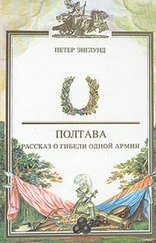In addition to its enormity, Czech bureaucracy is characterized by one basic feature: formal details are often much more important than substance.
This is very conspicuous in the judiciary system, where entire legal cases can be postponed because a form is not correctly filled out or an address has recently been changed. What’s more, judges are often engaged in formal matters that other countries solve with a civil servant and a computer. As a result, operations, such as registering a new company, that take a couple of days in, say, Scandinavia, can take four to five months in the Czech Republic.
It’s hard to say how many days (possibly years) of his or her life that the average Czech spends queuing up at different offices or running around gathering the necessary razítka (stamps). But more or less all of them have realized one crucial thing: you simply can’t beat the system (well, you can grease it — see: Corruption). This goes double for a vulnerable foreigner. However legitimate your complaints are, loud outbursts or even frustrated yelling don’t help you at all. On the contrary, the low-paid bureaucrat will be delighted to use his or her only privilege: i.e. the power to make the situation even worse for you, optimally causing you a nervous breakdown.
Consequently, there are only two ways of dealing with Czech bureaucracy. Either you pay somebody to fix the formalities and the queuing for you, or, if you decide to undergo the Calvary personally, you arm yourself with tons of patience, lots of phlegm, a half-witted smile — and a copy of Jaroslav Hašek’s Good Soldier Švejk.
This somewhat exotic name refers to a brand of herbal liquor that is now sold under the name Becherovka . Although most Czechs praise it to the sky and revere it with the same intensity as the Russiansworship their vodka or the French their Champagne, some (well, many) foreignershave problems swallowing this bitter mixture of aromatic oils and alcohol, delivered in its characteristic flat and green bottles.
Yet any foreigner who’d like to find friends in this country is strongly advised to conceal his or her potential dislike of Becherovka , as most Czechs would take it as an insult of their national pride. Miloš Zeman, the Czech Republic’s Prime Minister until 2002, even cherished the national treasure so profoundly that the country’s diplomacy still has to mitigate foreign governments whom Zeman offended while considerably animated by litres of herbal liqueur.
The widespread use of Becherovka as a fetish of Czech patriotism has, however, one slight drawback: it was invented by the pharmacist Josef Becher, and he was, like the vast majority of his fellow inhabitants in the West-Bohemianspa city of Carlsbad (now Karlovy Vary), actually a German(obviously, this is also a detail that you are advised to keep to yourself). Still, Becherovka is a colourful part of Czech cultural history, and it certainly belongs to the well-oriented foreigner’s basic knowledge of this country.

Photo © Jaroslav Fišer
It all started in 1805, when the English doctor Frobig came to Carlsbad, where he found accommodations in the house where Josef Becher had his pharmacy. Thanks to their common interests in mixing different fluids, the doctor and pharmacist soon got acquainted. In 1807, the two gentlemen presented the result of their long-lasting experiments: Carlsbad English Bitters .
It’s known that Josef Becher sincerely considered the “gastric drops” to be a medicine. However, hordes of patients in the spa city rapidly discovered that Becher’s Bitter not only improved digestion, but — thanks to the not insignificant alcohol content — also improved bad moods.
The production and marketing of Becher’s Gesundheits-Liqueur (Health Liqueur) hit its stride when Josef’s son Johann took over the management in 1841. It was also Johann (in Czech Jan) who registered the trademark — modestly enough, not in his father the inventor’s name, but in his own.
For the next century, agile marketing combined with big chunks of luck helped Becher’s liqueur to penetrate markets all over Europe, and it even became popular in Egypt. The company reached its zenith when Emperor Franz Josef, by coincidence, tasted the liqueur. The drops evidently pleased the imperial stomach, for after that day, Becher delivered 50 litres to the court in Vienna every month (His Imperial Highness probably didn’t consume it all by himself).
The Becher family’s success story came to a rather brutal end in 1945. As were nearly all the three million ethnic German citizens in Czechoslovakia, the Becher family was deported from the country (see: Munich Agreement). According to the Potsdam Conference’s decisions on war reparations, all their property — including the distillery — fell to the Czechoslovak state as compensation for damages caused by the Germans during their more than six-year occupation of Protektorat Böhmen und Mähren .
During the 40 years of communist misrule, Karlovarská Becherovka , as both the company and the liqueur were renamed, scraped by without any significant investments or efforts to promote exports. Luckily for Czech Becherovka fetishists, the bad times ended with the Velvet Revolution. In 1997, the distillery in Karlovy Vary — including the secret receipt of Becherovka — was sold to the Pernod-Ricard concern, which, after some wrangling with a Becher daughter company in Germany and a pirate distillery in Slovakia, has started the fight to regain the international position that was lost during the last half century.
That’s the whole story. If you still think the beverage tastes more like the medicine it once was promoted as than an irresistible aperitif, try this trick: nonchalantly order a beton (concrete), which is the Czech slang expression for Becherovka mixed with tonic.
This method has two advantages. Firstly, it clearly demonstrates that you are a true connoisseur of Czech drinking culture. And secondly, thanks to the tonic, beton doesn’t remind you of the gastric drops at all. Cheers!
The Czechs don’t have access to the ocean, so they can hardly be blamed for not offering a wild variety of delicious seafood (see: Czech Cuisine). Nevertheless, a foreignermay be somewhat surprised by the fact that the Czechs’ relations to fish can — with a slight exaggeration — be reduced to one single species: Cyprinus carpio — the carp.
Inhabitants of maritime nations often turn up their noses at this fat and thick-boned creature that revels in the mud and standing waters of fish-ponds. For a land-locked nation, though, the carp has its undisputed qualities.
First of all, the carp is an undemanding fellow, who is easily reared in artificial ponds. The Czechs discovered this practical advantage almost a millennium ago, when the country was christened. With the introduction of the new religion, a ban of eating meat in the time of fasting soon followed. Creative souls, however, got hold of the fleshy carp (how it found its way from China to the Czech lands is not documented) and the Lent problem was solved.
As in so many other fields of Czech economy and culture in the Middle Ages, also the rearing of carp took off under the reign of the dynamic Charles IV in the fourteenth century. Artificial ponds and lakes were constructed at big pace, especially in the Třeboň area, with the result that Bohemiaand Moraviaby the beginning of the seventeenth century could boast fish ponds covering a total of 160,000 hectares — almost three times the size of Balaton, Central Europe’slargest lake!
Читать дальше









![Theresa Cheung - The Dream Dictionary from A to Z [Revised edition] - The Ultimate A–Z to Interpret the Secrets of Your Dreams](/books/692092/theresa-cheung-the-dream-dictionary-from-a-to-z-r-thumb.webp)



